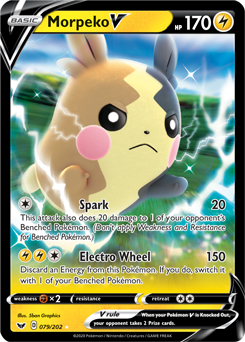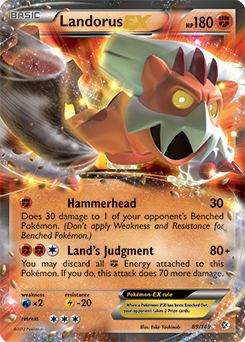Empoleon, My Legacy — Stage-2 Decks and TCGO’s Forgotten Format
Hello everyone! This article is a bit special. It’s not as relevant to competitive play as what you usually get from me, but it’s the article I have most enjoyed writing in a long time, because I get to talk about my favourite deck, in almost ten years of playing. I hope my enthusiasm shows!
Before we go any further, I’d like to discuss my plans for the month of April; the PTCGO tournament series was announced after I had already planned and started writing this article, so I won’t mention it today, except to say these two things:
First, I’m incredibly excited that there is a major online event (even an unofficial one) to replace EUIC. Although it doesn’t replace a real-life event, it’s still a way to gather a huge part of the community in the same (virtual) space, both so players can enjoy the thrill of a huge competition, and spectators can watch some of the best players in the world facing off.

Second, even though the Sword & Shield format is well-treaded by now, there’s still one article I want to write, about Morpeko V / Lillie's Poké Doll. This deck has been abandoned quickly in the community, which is strange because it was much more successful in Japan. While I won’t play Morpeko / Lillie’s Poké Doll at the first Qualifier of the PTCGO tournament series, I could see myself picking it up for the second or third one, depending on the metagame. I’ll explain why that’s the case, and how to build and play the deck, in my next article, so stay tuned for it! Then, in the following weeks, I’ll tackle Rebel Clash, which will be relevant for the fourth Qualifier of the PTCGO tournament series, as well as the Invitational.
In the meantime, I want to focus on another format. No, not Expanded; Legacy. This TCGO-only format has been neglected for years, but since TCGO is all we have now, there couldn’t be a better time to give it another try! It seems I’m not the only one to think that because I found opponents faster than usual when playing on the ladder last week. I tweeted recently that I was dying for someone to organise a Legacy online tournament, and honestly, if no one steps up, I might do it myself. If this happens, you can consider this article a way to get ahead of the competition!
I’ll start by recapping what Legacy is, and why it’s a great format. Then I’ll talk about some of the decks you can expect to face, but more importantly, I’ll reveal my Empoleon / Dusknoir decklist, which is either the best deck in the format (hard to tell when no tier list exists that I know of), or close to it. It’s also, again, my favourite deck to play in the history of the game!
What is Legacy?
Legacy is a TCGO format that was invented to replace Unlimited which, due to its turn-one-win decks, had stopped being anything close to a format and was only used by people win-trading to reach the end of the TCGO ladder faster. With Unlimited gone, cards from the HeartGold & SoulSilver sets were suddenly useless (since they couldn’t be played either in Standard or Expanded), so Legacy was invented: a format spanning from HeartGold & SoulSilver to Legendary Treasures, the last set before XY. At the time, these were all the sets available on TCGO that weren’t in Standard, but the format hasn’t changed since then.
This makes Legacy something of a rarity in the world of card games: we’re used to rotating formats, like Standard, and eternal formats, like Expanded. Both of these change whenever new cards are released. However, Legacy is (almost) the same as it was when it was created. In that sense, it’s much like an “old” format, like when players nostalgic for the formats of 2010 or 2004 or 2017 play them again with the cards they had at the time. Except that Legacy was never an official tournament format: there was no time when cards from HeartGold & SoulSilver to Legendary Treasures were played together, which means that there are unique combinations to play there. Another consequence of this format existing only via TCGO is that it can actually change if the rules of the games change. If you’re playing the Worlds 2010 format, you’ll use the turn one rules of the time. However, if you’re playing Legacy, you’re playing it on TCGO, which means that you’re using the new turn one rules. In other words, a format whose most recent cards were released in 2013 actually changed in 2020 because suddenly, the player going first can no longer play a Supporter!
Now, you may be wondering: is Legacy good? The answer is yes! It’s better than Standard and Expanded. Legacy games are slower-paced, and reward setting up and long-term planning in a way that hasn’t been seen in years in the official formats. I imagine if you’re new to the game and have never known an era before Tag Team Pokemon, Legacy games must look completely alien, like it’s another game entirely!
In Standard, it’s hard to find a deck that isn’t centred around Basic Pokemon, usually huge GX, V or Tag Team Pokemon. This means games are over quickly and the odds of a comeback are not very high. The exception is Galarian Obstagoon, but that only works because it directly counters the concept of Basic Pokemon — and even then, it has enough weaknesses, one of them being its own consistency, that decks like Arceus and Dialga and Palkia-GX / Zacian V routinely beat it.
Expanded, strangely enough, tends to use more Evolution Pokemon, sometimes as attackers but more often as support: Milotic, Garbodor, Vileplume, Aromatisse, Snorlax VMAX, to give a few examples. However, the format’s speed is even higher, and you can sometimes lose because your opponent used: Milotic, Ace Trainer Alolan Muk and attack with Night Watch on turn 2, leaving you almost locked, or because they managed to get eight Darkness Energy on turn one and OHKO’d your Tag Team Pokemon-GX with their Greninja and Zoroark-GX. Anyone who’s played the format has a similar story to tell: despite the existence of the ban list that’s supposed to prevent these kinds of strategies, there seems to always be one more degenerate deck that slips through the net, ready to be discovered by a future Regional Champion.
- Legacy has neither Standard’s nor Expanded’s issues. Sure, there are Pokemon-EX in the format, and a few of them are good and worth building a deck around. However, there are also many Evolution Pokemon worth playing, including attackers.
- Damage is lower, so it’s harder to get OHKOs on high-HP Pokemon. This means that Evolution Pokemon tend to stick around for a few turns, so they’re worth setting up.
- The game is slower. There’s nothing like Dedenne-GX or Shaymin-EX to draw lots of cards in one turn, so decks are limited in what they can do. Getting a turn one Night Spear is the exception, not the rule!
- There are very few ways to target benched Pokemon. This lets slower decks, including Evolution decks, get more time for their setup: no risk to see your only Zorua get Knocked Out on turn one!
The same reasons explain why Legacy doesn’t go the way of Expanded. There are definitely powerful combinations, but they take longer to achieve: you’re not going to see a game-breaking play on turn one or two that decides the game. You can always mount a comeback if you build your deck for it.
So What’s Good?

The official format that resembles Legacy the most, in my opinion, is Next Destinies – Legendary Treasures, the format of City Championships in winter 2013-14. For that exact format, there was a rule change preventing the player going first from attacking (a rule which is still around today). This made aggressive decks and Pokemon such as Landorus-EX less effective and prevented turn 1 donks. At the same time, Pokémon Catcher was nerfed and became the card we know today (the original Pokemon Catcher didn’t require a coin flip, which meant that Evolution decks had a lot of trouble setting up against big Basic Pokemon). Legacy is the same format, except will all the previous sets from HeartGold & SoulSilver to Noble Victories added, and the recent rule change preventing the player going first from playing a Supporter.
This concludes the public portion of this article.
If you'd like to continue reading, consider purchasing a PokeBeach premium membership! If you're not completely satisfied with your membership, you can request a full refund within 30 days.
Each week we post high-quality content from some of the game's top players. Our article program isn't a corporate operation, advertising front, or for-profit business. We set our prices so that we can pay the game's top players to write the best content for our subscribers. Each article topic is carefully selected, goes through multiple drafts, and is touched up by our editors. We take great pride in our program!

